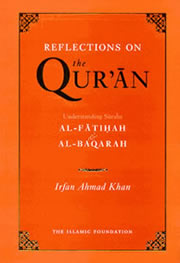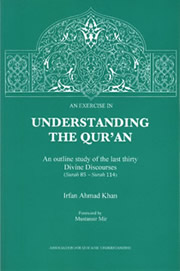The Role of Religion in the Life of a Civilization
Irfan Ahmad Khan
1. I will draw a distinction between ‘true religiosity’ and ‘pseudo-religiosity’. I will use my term ‘the Religion’ for common core of the teachings of the prophets and messengers of God who emphasized the oneness of human family as God’s servants. And I will argue that the Religion straightens human relations in order to build a universal civilization of peace. Its belief system is directed toward the establishment of economic and social justice in the human world and it underlines our accountability concerning proper use of earth resources for the wellbeing of humankind as a whole. However, it is possible to exploit religious sentiments for purposes which are, essentially, anti-Religious. Pseudo-religiosity is merely a show of religion. For pseudo-religiosity the tradition, form and names are more important than the spirit and the very essence of Religion. I will discuss how pseudo-believers act fanatically, sacrificing the purpose for which the Religion came into existence, to its emotional and external manifestations.
2. I will be concerned with both: the revival of a people through faith as well as the fact of degeneration of faith communities. In earlier history, it is the Religion which brought about the above mentioned revival, leading to the dawn of a new civilization which became a blessing for humankind. However, later the same faith communities which were thus revived during their Golden History may find themselves in a state of degeneration. In fact, it seems to me that today we are living in a plural world of faith communities which are looking for their regeneration.
It is, therefore, recommended that there is intra-faith work within each faith community. This will be directed toward its own regeneration. At the same time, interfaith work is also recommended. This interfaith work will enrich the intra-faith work and will receive benefit from the intra-faith work. As we will proceed further, there will be spiritual, moral and cultural progress in each faith community and at the same time, due to our interfaith work, a universal civilization of peace will emerge, slowly but surely. Obviously as these two parallel activities of the faith communities continue, the most active participants will benefit the most, leaving a healthy impact on the whole. I will also discuss the tendency in some faith communities to alienate themselves for the fear of being assimilated in the dominant culture.
3. However, the Western Civilization with its secular appearance is the most important participant in the present Dialogue of Civilizations. The West represents the most recent dawn of a new civilization with all its blessings (while some people in the East only see the threats) for the humankind. I will contend that there is something common in the nature of the Secular West and our faith communities which are also in a state of degeneration – so the urgency of the intra- as well as inter-work.
4. As a concerned person who has a genuine sense of belonging to both Islam as well as the West and who believes that God is active in more than one plane – to guide the human world toward peace, prosperity and progress – will examine in full detail the promises as well as our responsibilities, concerning the above two parallel activities.


